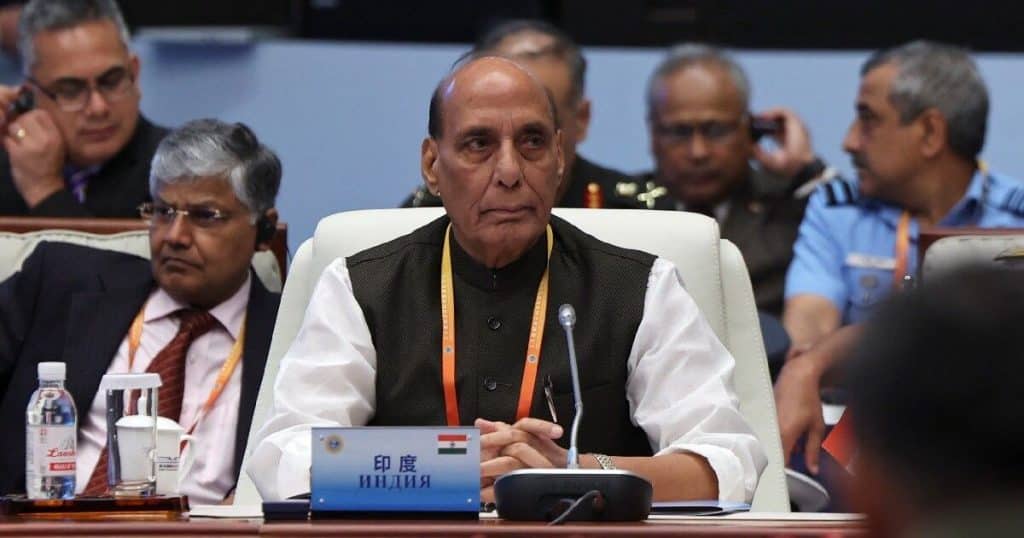India calls for a permanent solution to the border dispute with China.
India’s Defense Minister Rajnath Singh has stressed the need for a “permanent solution” to resolve the long-standing border dispute between the two countries, the Indian Defense Ministry said on Friday.
The meeting was held on the sidelines of the Shanghai Cooperation Organization (SCO) Defense Ministers’ Meeting in Qingdao, China.
Singh stressed the need to resolve the dispute through a structured roadmap and reduce the mistrust that has arisen since the 2020 border tensions, the Indian Defense Ministry said in a statement.
With a population of over one billion, India and China are two populous and nuclear-armed countries that share about 3,800 kilometers of common border in the Himalayan region, much of which is still undemarcated and disputed.
Although the region has been largely peaceful in recent decades, a deadly clash between the two countries’ forces in the Ladakh region in 2020 killed 20 Indian and four Chinese soldiers.
The incident led to a four-year standoff in military relations, with both sides deploying thousands of troops to the border. However, an agreement was reached in October last year for a mutual withdrawal, which has somewhat improved relations.
The Shanghai Cooperation Organization is a Eurasian-centric security and political body that includes China, Russia, India, Pakistan, Iran and several Central Asian countries.
The defense ministers’ meeting is being held ahead of the organization’s summit this fall.
According to IRNA, the defense ministers’ meeting of the SCO member states was held in Qingdao, China, on Thursday.
Iranian Defense Minister Brigadier General Aziz Nasirzadeh also attended the meeting.
The Shanghai Cooperation Organization (SCO) was formed with the aim of multilateral security, economic and political cooperation. It currently has 10 core members, including China, Russia, India, Iran, Pakistan, Kazakhstan, Tajikistan, Uzbekistan, Kyrgyzstan and Belarus, and 6 observer members, making it one of the largest regional organizations.

